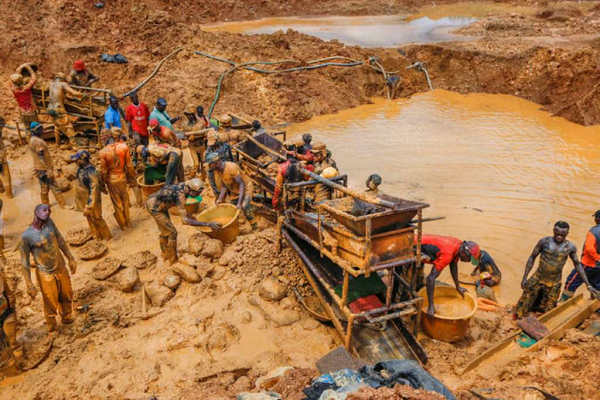The Chief of Akyem Wenchi, who also serves as the Oseawuohene, Daasebre Dr. Asumadu Appiah, has candidly acknowledged that the youth of Wenchi and its
The Chief of Akyem Wenchi, who also serves as the Oseawuohene, Daasebre Dr. Asumadu Appiah, has candidly acknowledged that the youth of Wenchi and its surrounding areas are unlikely to cease engaging in illegal mining activities, commonly known as “galamsey,” despite restrictions against the practice.
Daasebre Appiah explained that the Wenchi area lacks alternative employment opportunities, leaving illegal mining as the primary source of income for many.
Consequently, efforts to completely eradicate galamsey in the region are unlikely to succeed.
Instead of imposing outright bans, the Chief advised the government to implement a more regulated community mining scheme. Such an approach, he argued, would legalize the activities, allow the state to benefit from the resources, and help preserve the natural environment.
“Galamsey is the only job available in our community. We cannot stop it if you ask us to. What we need are good policies and guidelines to conduct mining responsibly. We’ve heard of community mining schemes, and I’ve already submitted an application to the district to participate in it,” Daasebre Appiah stated.
He emphasized the importance of involving chiefs, who are the custodians of the land, in the management of natural resources. He criticized the practice of granting mining leases and permits to companies from Accra without consulting local chiefs, insisting that this approach must change.
Daasebre Asumadu Appiah made these comments during a courtesy call by NPP flag bearer Dr. Mahamudu Bawumia at his palace in Akyem Wenchi, as part of Dr. Bawumia’s campaign tour of the Eastern Region.
In response, Dr. Bawumia acknowledged the need to protect the environment, especially in the context of global warming. He revealed that his administration plans to place greater emphasis on community mining schemes, which would include the introduction of a more flexible licensing regime for small-scale mining.
“I believe we haven’t gotten it right yet. We need to support small-scale mining in a way that, if done correctly, can allow galamsey to be conducted responsibly. We need a licensing regime that simplifies the process, making it easier for people to acquire the necessary permits to work,” Dr. Bawumia remarked.
He also highlighted the importance of ensuring that traditional authorities are actively involved in the management and concession of mining sites, stressing that their participation is crucial for sustainable mining practices.

COMMENTS